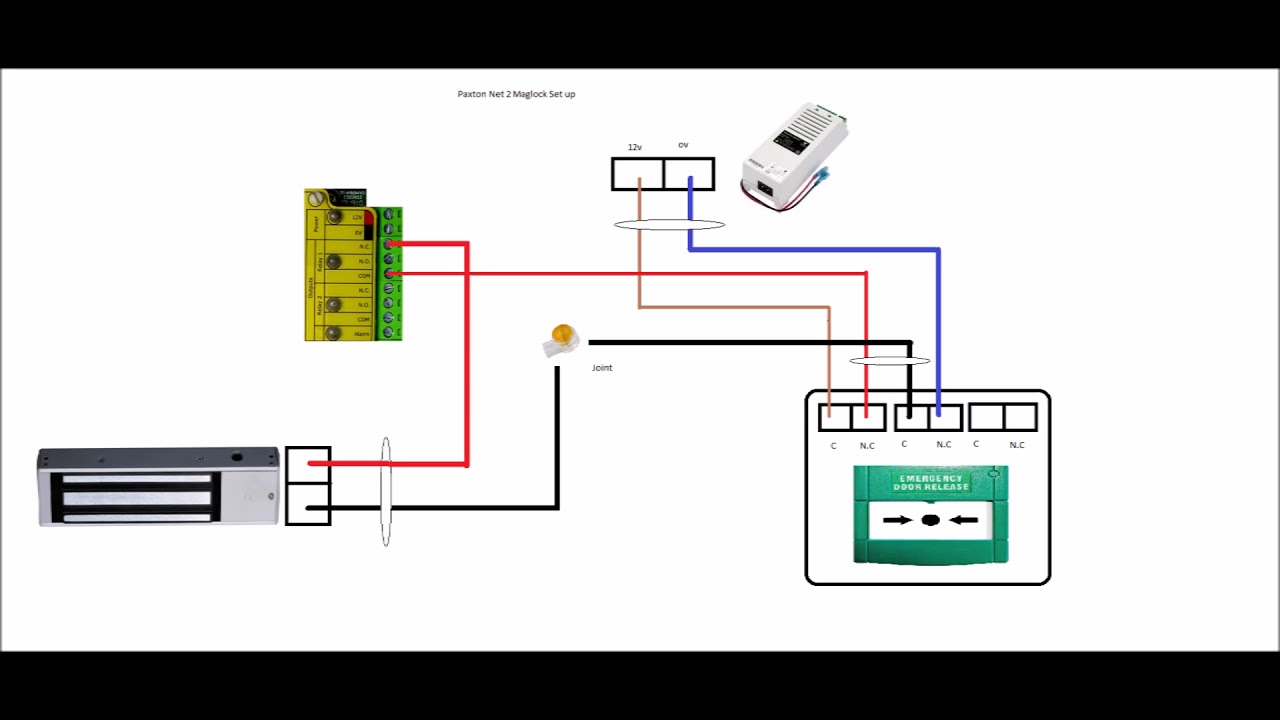When it comes to understanding the intricacies of electrical systems, a Magnetic Lock Wiring Diagram can be an invaluable tool. By providing a visual representation of the wiring connections and components involved in a magnetic lock system, these diagrams help technicians and installers ensure proper installation and troubleshooting. Let’s delve into the importance of these diagrams and how they can be effectively utilized.
Why are Magnetic Lock Wiring Diagrams Essential?
Understanding the wiring diagram of a magnetic lock system is crucial for the following reasons:
- Ensuring correct installation of the magnetic lock
- Troubleshooting electrical issues effectively
- Identifying components and their connections accurately
- Minimizing the risk of electrical hazards
How to Read and Interpret Magnetic Lock Wiring Diagrams
Reading and interpreting a magnetic lock wiring diagram requires attention to detail and a basic understanding of electrical symbols. Here are some tips to help you:
- Identify the key components such as the magnetic lock, power supply, control panel, and wiring connections
- Follow the flow of electrical current through the diagram to understand the circuitry
- Refer to the legend or key for symbols and color codes used in the diagram
- Consult the manufacturer’s instructions or technical documentation for additional guidance
Using Magnetic Lock Wiring Diagrams for Troubleshooting
When faced with electrical problems in a magnetic lock system, the wiring diagram can be a valuable resource for troubleshooting. Here’s how you can use the diagram effectively:
- Identify potential points of failure based on the wiring connections
- Check for continuity, voltage, and resistance at key components using a multimeter
- Trace the wiring path to locate any loose connections, short circuits, or damaged wires
- Refer to the wiring diagram to verify proper configuration and connections
Importance of Safety When Working with Electrical Systems
Working with electrical systems, including magnetic lock wiring, requires caution and adherence to safety practices. Here are some safety tips to keep in mind:
- Always turn off power before working on electrical components
- Use insulated tools to prevent electric shock
- Avoid working on live circuits whenever possible
- Follow proper lockout/tagout procedures to ensure safety
- Wear appropriate personal protective equipment, such as gloves and safety glasses
Magnetic Lock Wiring Diagram
Maglock Wiring Diagram

Access Control Magnetic Door Lock Wiring Diagram

Wiring Diagram For Magnetic Door Lock|TOPLOCK

magnetic lock wiring diagram

Magnetic Lock Access Control Kit Wiring Instructions – YouTube
